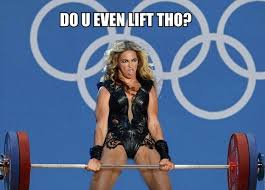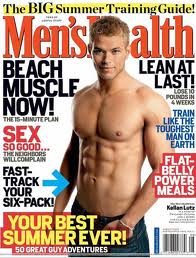So did you guys hear about A-Rod? Yea...the pro baseball slugger who got caught using performance enhancing drugs? Gasp. Conspiracy!! Deception!! RAGE!!
For real people?
First of all, none of us should be surprised. We say we aren't but that's bullsh*t. Inevitably there's always someone who says what we're all thinking, at least in part: "How could someone with so much be so stupid and risk it?"
Tell me something. If there was a substance out there that had negligible health risks, was easily accessible and would likely guarantee to double if not triple or quadruple your yearly salary wouldn't you take it? Yes, I'm sure plenty of us would hold true to our principles and refuse to cheat but don't be an a$$hole and try to act like you can't understand the draw. Quick side note, I'm sure there are plenty of you reading this going "but...but...steroids are bad for you! they cause cancer and death and...stuff." All I would say is that's....well researched.
The subject of steroids in sports is simple and should come down to only one thing. They cheated. There are rules against using steroids and they broke the rules. Whenever people try to spark a moral quandary into whether or not the use of steroids is wrong it's laughable if not outright hysterical. Come on guys, really? Can't we at least have enough perspective to see what's happening? You're caught up in the stigma.
People ask me about supplements a lot. Some of the things that they say boggle my mind. Is creatine a steroid? (no), will caffeine help me burn fat? (yes), do they make glutamine from insects? (no...wait...what?) Some of it's simple - they just don't know. I have an education in this subject and they don't. Reasonable. What cracks me up is the people who blatantly think that all sports supplements are suspect and potentially evil, as if all supplement companies are in fact the machinations of some lab coat wearing mad scientist who wants to simultaneously poison our bodies and empty our bank accounts.
Personally I believe much of this is related to our view of steroids. "it's not natural!" Yea, well neither is deadlifting 495. NEXT. "It has stuff in it that was chemically engineered so it must be bad for me." Right, just like all of those life saving medications the pharmaceutical industry provides us (at ludicrous cost) which are also chemically engineered. Not natural must mean infectious and evil, right? Wrong, now put the hemp seed smoothie down. NEXT. I just don't want to put that kind of stuff into my body, you know? <-- this? this right here? This is the one that cracks me up the most. Oh you don't want to put a powerful ergogenic aid that may significantly alter your functional biochemistry into your body? Meanwhile they're nursing a hangover with a Starbucks latte and four Advil.
Some of you may already know this but if you don't, listen up (or read...whatever). Alcohol and caffeine likely have a more significant impact on your cognitive, metabolic and musculoskeletal functions than anything you can buy at GNC or Vitamin Shoppe. For example:
ALCOHOL
and all the bad stuff it does to your body
disclaimer: I love alcohol. Big fan. Not saying stay away, just saying be aware.
1. Alcohol makes you fat. Legitimately, and it's not simple due to the excess of calories in a beer. Even that skinny martini you're drinking could be short circuiting your weight loss attempts. We're all familiar with the main macronutrients, right? CHO, Fat and protein. They are differentiated by their functions in our body but ultimately what they are truly identified by (and what determines their function) is their chemical structure. Protein has amine groups, carbohydrate is composed entirely of Carbon, Hydrogen and Oxygen and triglycerides (fat) are three long(ish) chain fatty acids attached to a glycerol. Now, interestingly enough glycerol is actually an alcohol which is a compound of a different chemical structure (it has a hydroxyl (OH) functional group attached). Generally speaking alcohols are either ethyl (drinkable) or methyl (poisonous).
Our body has different ways of processing each compound and different preferences. In addition, the type of activity you prefer alters which substance you will preferentially burn for fuel; endurance athletes burn fat more readily than a powerlifter for example. Generally speaking however, your body burns carbohydrate --> fat --> protein, in that order. Alcohol unfortunately rolls in and shoves everyone else out of the way like the drunk bastard it is. If you have alcohol in your system your body will burn it preferentially for energy over anything else. In other words consuming alcohol with a meal, while frequently fantastic, pretty much ensures that your metabolism is going to store those other nutrients. This is why simply observing the caloric content of a beverage may not spare your waistline. It makes all the other calories you consume stick to your ribs that much more.
2. Decreased quality of sleep - Heavy drinkers (more than 3 drinks most days of the week) get less REM sleep and all of the benefits that come along with it. Refer to my
post on sleep for more details. The reason for this is that alcohol consumption overstimulates production of GABA in your brain, a chemical compound that aids relaxation and helps us fall asleep faster but concurrently makes it more difficult for us to get deep, restful sleep. Go figure.
3. Decreased testosterone production - Not examining any other factors, if you drink 3 drinks a night your testosterone production may go down by as much as 7%. Considering the fact that testosterone helps build muscle, burn fat and increases awareness and cognitive function, this is clearly not the most positive thing.

4.
Fetal Alcohol Syndrome - The myriad negative effects that consuming alcohol can have on your baby if you are expecting. I really have no patience for this sh*t. You can drink a glass of wine from time to time but if you've got a baby on the way and you're hitting the jack like a sorority girl during rush you need to be slapped. Hard.
5. The obvious stuff - everyone knows that alcoholism is bad and that alcoholics are riddled with heart disease, liver problems and other health issues not to mention the indirect consequences on your life and livelihood. I don't think I should have to go into detail about the stuff you guys probably already know. This includes avoiding high calorie, super sugary alcoholic cocktails if you're trying to lose weight but again, I really shouldn't have to tell you that.
Now for some good news. You know that part where i mentioned testosterone production? Well the thing is a 7% decrease really isn't that much. You can actually increase your production by up to 200% just by altering your diet. That means that if you did so, even if you drank, you could still be up by 193%. Seems good to me. On top of that, while alcohol does suppress fatty acid oxidation it actually increases insulin sensitivity and action. I think it's also worth mentioning that as long as your alcohol consumption remains reasonable (1-3 drinks/ day some days of the week) you can moderate ALL of the negative effects of alcohol consumption through diet and exercise.
So we've discussed alcohol, one of the omnipresent substances of the day. Let's move on to coffee or more specifically, caffeine.
Caffeine
and all the awesome stuff it does to your body
or: Why Coffee is Magic
Caffeine is a powerful hormone stimulator. Yep, hormones, the group of biological compounds to which all popular PEDs belong. That macchiato you're drinking actual does some of the same things. Caffeine has a whole bunch of effects on our body but many of those that we understand can be attributed to the production of the following compounds:
1. Glucagon - This pancreatic hormone is the counterpart to insulin. Where insulin signals for storage, glucagon signals for usage. Glucagon activates an enzyme called hormone sensitive lipase (HSL) which catalyzes the reaction that cleaves stored fats into free fatty acids (FFAs) that your body can then use as a fuel source for beta oxidation. In other words, increased glucagon leads to increased fat loss not solely by increasing metabolic rate, but by also increasing your bodies ability to use FFAs as a fuel source.
2. Adrenaline (epinephrine and norepinephrine) - Caffeine stimulates the production of the hormones epinephrine and norepinephrine which are synthesized in the adrenal gland of our brain. These hormones have a vast array of effects including but not limited to:
-increased awareness
-increased energy levels
-increased cognitive performance
-increased muscular force production
-increased rate of nervous system transmission
-bronchodilation (opening of the passageways of your lungs)
-increased capacity and function of long term memory
Adrenal hormones were designed by evolution to turn us into superhuman badasses in a time of need. They essentially supercharge all of our physiological systems that are directly related to physical/athletic performance. They also up-regulate HSL (just like glucagon) which leads to increased fat burning.
Now despite the fact that I love caffeine second only to my dog Cody and my man Bats, it does have some significantly negative aspects. For one it's a highly addictive substance with risks of chemical dependency. Secondly it can lead to increased blood pressure as it seems to have it's own vasoconstrictive properties in addition to those of epinephrine, which it increases. It may also decrease insulin sensitivity because it appears to have a negative effect on removal of glucose from the bloodstream but I can't remember where exactly I read that at the moment. It can also lead to anxiety, tremors, and impaired motor function when consumed in high amounts or by high-risk individuals.
It's probably worth mentioning that sometimes people confuse the effects of caffeine and the effects of coffee because for many of us they are one and the same. As far as this post goes, the effects that I've listed are SPECIFICALLY referring to the consumption of caffeine. Coffee beans contain a number of antioxidants and other compounds in addition to the stimulant. Here's a graphic I found that lists some of the extraneous effects of coffee both negative and positive.

Alcohol and Caffeine are powerful compounds that are also culturally omnipresent. The purpose of this post was not to tell you they're bad for you because they aren't. In fact both compounds actually offer a myriad of health benefits when consumed in a reasonable, moderate manner. Do you have to take them? No, of course not, although it is worth mentioning that in general people who consume a moderate amount of alcohol and caffeine are healthier than those who consume an excessive amount of either or none at all. Granted, this could be entirely based on the fact that the moderate consumption is due to the moderate and balanced lifestyles of the consumers but that would probably make entirely too much sense. I can't be a real fitness guru using calm, sound logic like that. No way.
So next time someone tells you they're on a cycle of creatine and something in your brain says, "tell them they're going to die!!!" just remind yourself that you probably took a more dangerous and potent substance to wake up this morning, if not to relax last night. Stay tuned this week for another post delineating what supplements are actually useful, what they do and how to use 'em.
As always, good luck and good lifting.
Cheers.









































